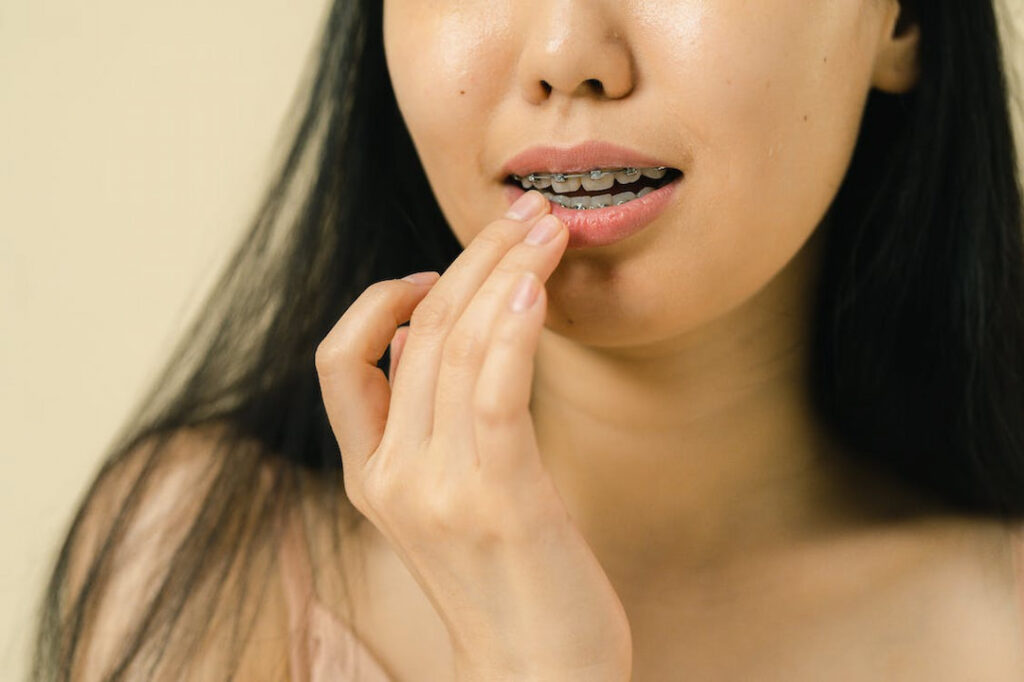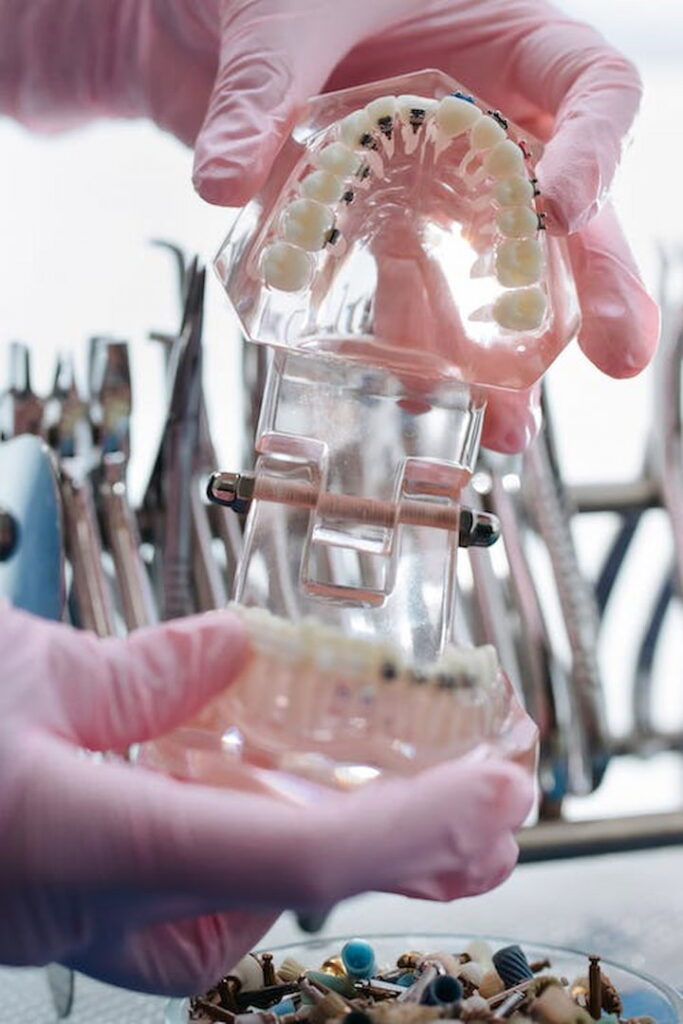
You’ve just been told that you need braces to correct your teeth. You probably have a ton of questions going through your head. How long do I need to wear braces and how long do braces last? What will they feel like? Can I speed up my treatment time? Do braces hurt?
These are all logical questions, and you’re not the first person to think about them when considering top invisible braces or quality braces for adults. Well, you can rest easy, because I’m going to share with you a first-hand account of having teeth straightened so you know how long to wear braces. By knowing what to expect, you will feel more confident to take the first step toward healthier, happier teeth.
How Long to Wear Braces - Considering Orthodontic Treatment?

Bottom line, there are a lot of factors that contribute to how long you will have to wear braces. Everyone is different, with different dental concerns that need to be addressed uniquely.
Some people will have to wear braces longer than others depending on the severity of their teeth. Your age also comes into play and can affect the average time for braces. Thankfully, you needn’t worry about being left in the dark.
Prior to getting braces, your orthodontist will thoroughly evaluate your dental status and give you an accurate time frame of how long to wear braces. By knowing what your exact dental concerns are (see ‘How to Know if You Need Braces‘), your dentist will be able to treat you accordingly, ensuring that you get care that is tailored to your needs.
With that in mind, let’s explore some common factors of braces and answer questions that are most frequently asked.
On average, how long do braces take to work?

So, how long do braces take to straighten teeth? Well, on average, braces can straighten your teeth and leave you with a more attractive smile in just a year and a half. For some patients, it’s possible that it will take them around two years.
It’s important to know exactly what kind of time frame you’re looking at. After all, you’re going to be the one who wears the braces every day for more than a year.
You may hear some claims from time to time from people telling you that you can get your braces off in just a few months. Don’t let this get your hopes up. Remember, your teeth are being repositioned in your jawbone and mouth. There’s some pretty serious work going on and it’s going to take some time.
Even if your dental concerns aren’t that great, there’s still a considerable amount of changes to be made. Be patient with it and follow your orthodontist’s instructions to the letter and you should have a manageable experience.
Does a Patient's Age Matter?
If you’re older, you’re probably wondering how long to wear braces for adults. For the most part, children’s teeth are easier to straighten in less amount of time. The older you get, the more it takes to change your teeth’s positioning.

It’s important to consider that your teeth have been in place far longer than children’s teeth. There’s bound to be greater pushback in straightening your teeth.
That’s not to be read as impossible. It simply means it could take longer to complete your treatment. In some cases, adults have had to wear braces for as long as three years to achieve the results they wanted.
There are even children who need to wear braces for an extended period of time due to the alignment of their jaw and other factors. If it’s determined by the dentist that a tooth is going to cause issues with another midway through treatment, an extraction may be needed, thereby prolonging treatment even further.
The Type of Braces Affects Treatment Time
This innovative option can reduce the time it takes to wear braces by several months. Instead of using metal and wires, clear plastic aligners straighten your teeth equally well.
You wear several sets throughout the straightening process, with each new set gradually straightening your teeth more and more.
Can I Shorten the Time for Braces Treatment?

If you’re asking how long it takes to get braces off, you’re probably interested in finding ways to speed up your treatment time. Surprisingly, there are times when a patient’s behavior has shortened treatment.
The better you take care of your teeth will play a role in your treatment time. You should be practicing optimal oral health and hygiene each and every day. Failing to maintain the best oral care can result in issues during treatment that could extend your treatment.
There’s no question that keeping your teeth clean while wearing braces can be a challenge. Brushing and flossing are vastly different when you have metal and wires in your mouth.
But by doing your absolute best to rid your mouth of bacteria will help prevent cavities and tooth decay – both of which you don’t want, especially while wearing braces.
It’s also of paramount importance that you follow all of your dentist’s instructions. In doing this you can look forward to the possibility of getting your braces off sooner than anticipated.
You also need to take extra caution in your life to ensure a healthier – and hopefully faster – straightening process. This means wearing plenty of protective headgear when playing sports or exercising.
Some activities may need to be avoided altogether while wearing braces. This is only for your safety and best interest. If you want the fastest process possible, you may need to make some sacrifices for the time being.
Be Compliant
How long do braces stay on when you follow the rules? A lot less than if you don’t, that’s for sure. No matter how difficult it gets throughout the straightening process, always be as compliant as humanly possible.
You are likely to get impatient, annoyed, and maybe even a little ticked off at times. Hey, it’s natural. You aren’t the first person to feel this way and you certainly won’t be the last. Ask as many questions as you can when you visit your orthodontist.
Let them know that you want to do everything you can to ensure a great, productive experience with your braces. They may have some advice on things you can try to expedite your dental treatment time.
Even if they don’t, though, you must remain steadfast and patient. The more you can comply with the rules and instructions in place, the easier time you’ll have with your braces.
If you are told that you need to take a break on certain foods or activities, do it. There’s no need to make a fuss or break the rules. These suggestions are in place for the betterment of your teeth and health.
They certainly aren’t there to punish you. Remember, your orthodontist wants your braces to provide you with better, healthier teeth, too. You can trust that the instructions they give you are designed to limit harm to your mouth and teeth while ensuring optimal results.
Braces After-Care
So, how long do people wear braces who follow the rules? The results vary, but you could be looking at weeks or months. It all depends on you. What also depends on you is the care you give your teeth after the braces have finally been removed.
Just because your teeth are now straighter doesn’t mean you can slack off. Now is the time to really stay on top of your home dental care. Get into the habit of brushing twice a day. Be sure to attend all follow-up dental appointments.
The smarter you are with your dental care, the better chance you’ll have of not losing those teeth you worked so hard to straighten.
Many people disregard their retainer after getting their braces off because they’re over it and ready to move on. This is a big mistake. Your retainer is responsible for keeping your newly-aligned teeth in place following the removal of the braces.
Many patients who don’t take their retainer seriously find out the hard way that it’s an important part of after-care. Sure, your teeth will still look way better than they did prior to getting braces. But you will certainly lose some of their perfection.
Wear your retainer when your dentist tells you to and you’ll be sure to get your money’s and time’s worth from your braces treatment.
Additionally, you need to care for your retainer. This means cleaning it daily, no matter what. Failure to maintain a clean retainer can lead to bacteria forming on your fresh, new teeth.

Bacteria leads to cavities. Cavities lead to tooth decay. Tooth decay leads to tooth loss. Don’t risk it. Keep your retainer clean.
Follow your dentist’s guidelines and always attend appointments. This is incredibly important. I may sound like a broken record, but you’d be amazed at how many people ditch their dental care after their braces come off.
That’s one of the worst things you can do. Maintain a great relationship with your dentist and follow their instructions and you are more likely to have healthy, happy teeth that last.

